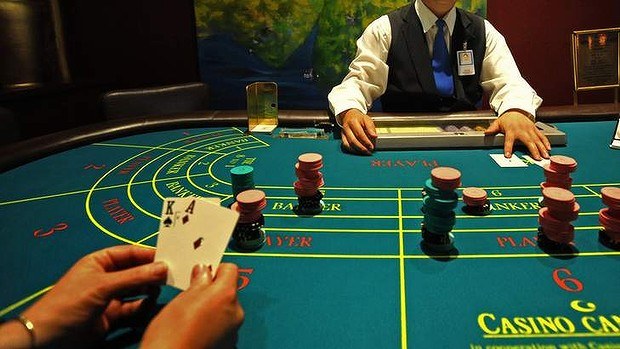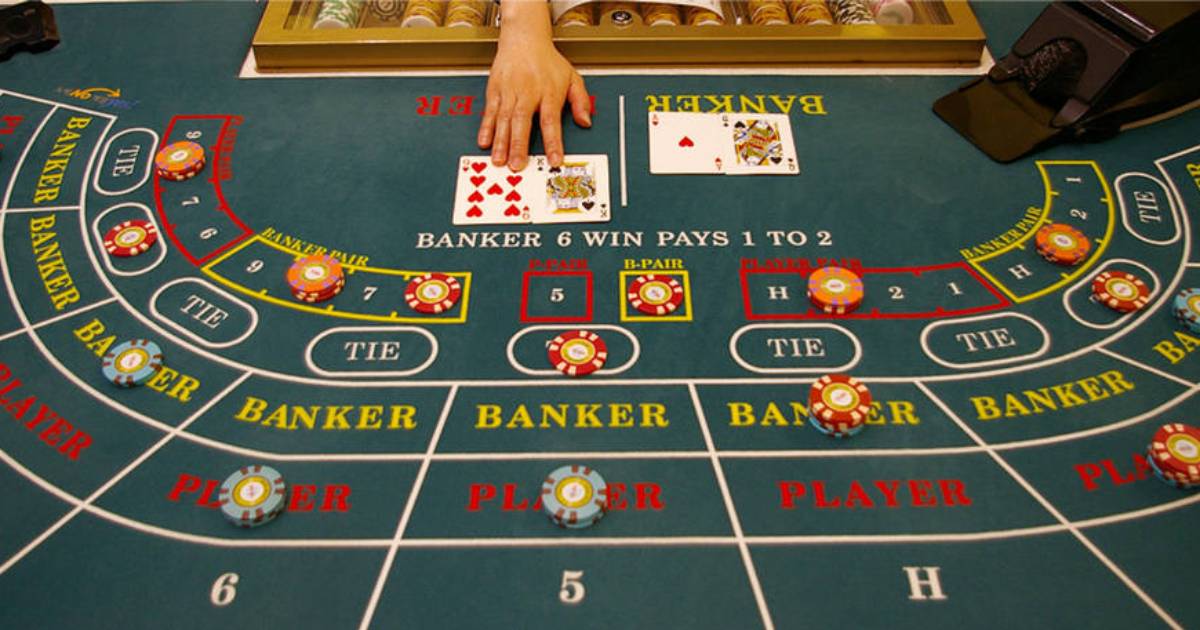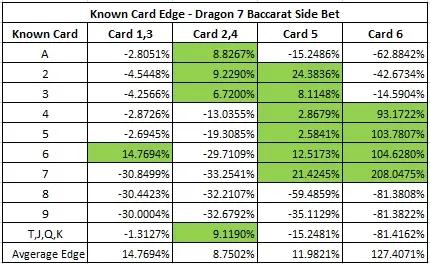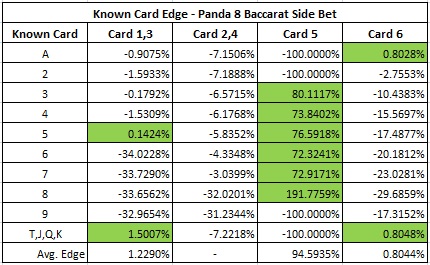Baccarat Tricks | In the world of baccarat, players have long sought ways to gain an edge over the casino. One of the most powerful and elusive methods is known-card play. This strategy involves using knowledge of a single card’s rank within the shoe to make calculated wagers. Today, we delve into the fascinating world of known-carding and explore its application to the Dragon 7 and Panda 8 side bets.

Understanding Known-Card Play
Known-card play is a sophisticated technique used by Advantage Players (APs) to gain an advantage over the casino. An AP will patiently count down the shoe until their target card reaches a specific position, typically one of the next six cards in the shoe. Armed with this information, the AP can strategically place wagers to capitalize on their knowledge.
The Ribbon Spread Technique
One method that can lead to an exposed card is the “ribbon spread” technique. This procedure involves the dealer removing approximately 20 to 25 cards from the front of the eight decks after the cut. The dealer then spreads these cards face down on the layout, counting each card until the 14th card is found. A plastic cut card is placed between the 14th and 15th cards, and the spread of cards is collected and placed behind the eight decks. This process may accidentally expose the back card of the shoe, which is crucial for known-card play.
Baccarat Tricks – Using Exposed Cards for Advantage

The exposed card provides valuable information for the AP. By noting the rank of the exposed card, the AP can then determine the exact number of cards removed from the back of the shoe and spread. Subtracting this number from the total number of cards in the shoe (416 for eight decks) allows the AP to identify the exact location of the exposed card. Armed with this knowledge, the AP can make informed decisions on placing their bets.
Baccarat Tricks – Known-Carding the Dragon 7 Side Bet
The Dragon 7 side bet is an enticing option for known-card play. Offering a 40-to-1 payout if the Banker hand is a three-card winning 7, this side bet presents a chance for a substantial edge. The following table illustrates the specific situations where an AP should make the Dragon 7 side bet:

Dragon 7 Baccarat Side Bet
SUMMARY
The AP should make the Dragon 7 side bet in the following situations:
- Ace in position 2 or 4.
- 2 in position 2, 4, or 5.
- 3 in position 2, 4, or 5.
- 4 in position 5 or 6.
- 5 in position 5 or 6.
- 6 in position 1, 3, 5, or 6.
- 7 in position 5 or 6.
- T, J, Q, K in position 2 or 4.
If the AP makes a Dragon 7 wager precisely when they have a known-card edge, their average edge will be an impressive 29.3343%. Notably, the extreme edge possibilities occur when a 4, 5, 6, or 7 is the sixth card in the window. These cards are premium drawing cards for the Banker hand to end with a three-card total of 7, making them highly advantageous for the AP.
<Baccarat Strategy – 3 Best Strategies from Experts>
Baccarat Tricks – Known-Carding the Panda 8 Side Bet
Similar to the Dragon 7, the Panda 8 side bet is also a viable option for known-card play. The Panda 8 side bet pays 25-to-1 if the Player hand is a winning three-card 8. The following table outlines the specific situations where an AP should make the Panda 8 side bet:

Panda 8 Baccarat Side Bet
SUMMARY
The AP should make the Panda 8 side bet in the following situations:
- Ace in position 6.
- 3 in position 5.
- 4 in position 5.
- 5 in position 1, 3, or 5.
- 6 in position 5.
- 7 in position 5.
- 8 in position 5.
- T, J, Q, K in position 1, 3, or 6.
If the AP makes a Panda 8 wager when they have a known-card edge, their average edge will be 28.8035%. The AP should be cautious, as a fifth card that is an Ace, 2, 9, T, J, Q, or K guarantees a losing Panda 8 side bet.
Conclusion
Known-card play is a potent technique that can provide Advantage Players with a significant edge in baccarat side bets such as the Dragon 7 and Panda 8.
By strategically leveraging exposed cards and meticulous betting, skilled APs can tilt the odds in their favor. However, it’s important to note that casinos are vigilant against known-carding, and higher betting limits on international tables may be necessary to make this technique truly profitable. As always, the key to success lies in the AP’s ability to carefully observe and exploit the shuffle procedure for their advantage.



